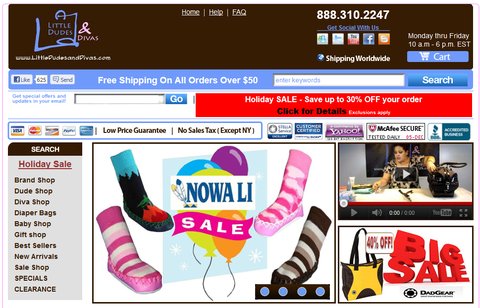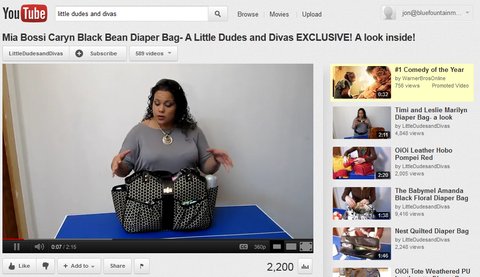The next day, boom: it sold 13,071 copies.
“Gone, Baby, Gone” had been designated as a Kindle Daily Deal on Amazon, and hundreds of thousands of readers had received an e-mail notifying them of a 24-hour price cut, to $1.99 from $6.99. The instant bargain lit a fire under a dormant title.
Flash sales like that one have taken hold in the book business, a concept popularized by the designer fashion site Gilt.com. Consumers accustomed to snapping up instant deals for items like vintage glassware on One Kings Lane or baby clothes on Zulily are now buying books the same way — and helping older books soar from the backlist to the best-seller list.
“It’s the Groupon of books,” said Dominique Raccah, the publisher of Sourcebooks. “For the consumer, it’s new, it’s interesting. It’s a deal and there isn’t much risk. And it works.”
Finding a book used to mean scouring the shelves at a bookstore, asking a bookseller for guidance or relying on recommendations from friends.
But bookstores are dwindling, leaving publishers with a deep worry about the future of the business: with fewer brick-and-mortar options, how will readers discover books?
One-day discounts are part of the answer. Promotions like the Kindle Daily Deal from Amazon and the Nook Daily Find from Barnes Noble have produced extraordinary sales bumps for e-books, the kind that usually happen as a result of glowing book reviews or an author’s prominent television appearances.
Web sites like BookBub.com, founded last year, track and aggregate bargain-basement deals on e-books, alerting consumers about temporary discounts from retailers like Amazon, Apple, Kobo and Barnes Noble.
“It makes it almost irresistible,” said Liz Perl, Simon Schuster’s senior vice president for marketing. “We’re lowering the bar for you to sample somebody new.”
E-books are especially ripe for price experimentation. Without the list price stamped on the flap like their print counterparts, e-books have freed publishers to mix up prices and change them frequently. Some newly released e-books cost $14.99, others $9.99 and still others $1.99.
Consumers are flocking to flash sales, said Russ Grandinetti, Amazon’s vice president for Kindle content, because the deals whittle down the vast number of choices for reading and other forms of entertainment.
“In a world of abundance and lots of choice, how do we help people cut through?” Mr. Grandinetti said. “People are looking for ways to offer their authors a megaphone, and we’re looking to build more megaphones.”
Mr. Grandinetti said one book, “1,000 Recordings to Hear Before You Die,” was selling, on average, less than one e-book a day on Amazon. After it was listed as a Kindle Daily Deal last year, it sold 10,000 copies in less than 24 hours.
Some titles have tripled that number: on a single day in December, nearly 30,000 people snapped up digital copies of “Under the Dome,” by Stephen King, a novel originally published in 2009 by Scribner. For publishers and authors, having a book chosen by a retailer as a daily deal can be like winning the lottery, an instant windfall of sales and exposure.
In February, a crime novel by the little-known author Lorena McCourtney, released by the Christian publishing imprint Revell, was selected as a Nook Daily Find. The sales from that promotion alone were enough to propel it onto The New York Times best-seller list.
At HarperCollins, executives said they have seen books designated as daily deals go from 11 copies sold in one day, to 11,000 copies the next.
Not all of them take off, though. One publisher said some books fizzle out quickly, attracting only several hundred downloads in a day. Another publisher said he is hesitant to discount that steeply, fearing that consumers will eventually resist paying more than a few dollars for a book.
But part of the allure of flash sales is what can happen afterward: a ripple effect that increases sales on an author’s other work.
If one book in a series is offered in a one-day promotion, readers who liked it will often buy others in the series.
“We’ve found that one of the key opportunities with it is the halo effect,” said David Steinberger, the chief executive of Perseus Books Group. “It’s hard for it to be highly successful economically at these very low prices, even if the volume goes up for a single day. But if you create awareness for the book, it can make a lot of sense for the author.”
The book that is discounted often sells at a higher level after the daily deal than it did before, even though it has returned to the regular price.
“Food Inc.,” the companion book to the documentary film, sold hundreds of copies each month before a one-day promotion on Amazon. On the day of the promotion, it sold thousands of copies; afterward, the book sold steadily at twice the level before the promotion, Mr. Steinberger said.
Tim Lavalli, a writer in Berkeley, Calif., said he reads at least two books a week, receiving almost all his recommendations from BookBub or Ereader News Today, another daily-deal aggregator.
It takes little time — and hardly any money — to download e-books when they are on sale, Mr. Lavalli said, making it easier to give up on a book if it does not keep his interest.
“You can read the first few chapters and say, this guy can’t write,” he said. “Then you throw it away.”
Jim Hilt, the vice president for e-books at Barnes Noble’s Nook unit, said sales generally peak on Wednesday and Thursday, when customers start planning for the weekend and thinking about which books they are going to read.
“Those are really good days to get the right piece of content in front of someone,” he said.
Ms. McCourtney, based in southern Oregon, said she was shocked to learn from her publisher in February that her most recent book, “Dying to Read,” was a best seller.
Ms. McCourtney, who has published 42 novels, said it was a career first.
“I had never made The New York Times best-seller list before, so I was delighted,” she said. “It certainly felt good.”
Article source: http://www.nytimes.com/2013/05/27/business/media/daily-deals-propel-older-e-books-to-popularity.html?partner=rss&emc=rss


